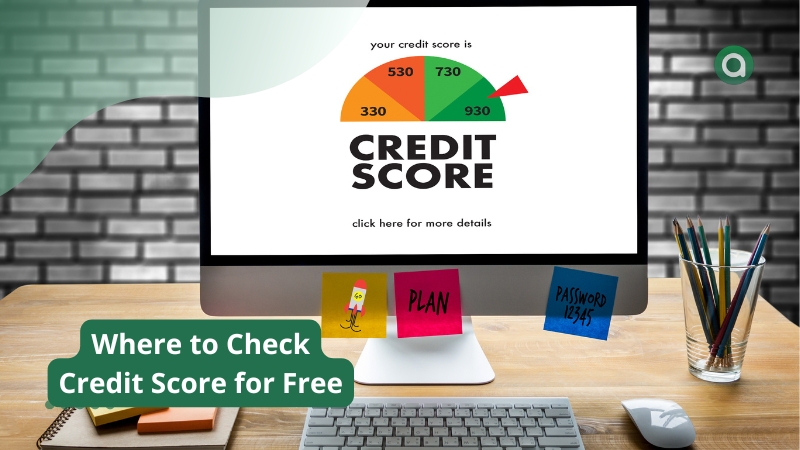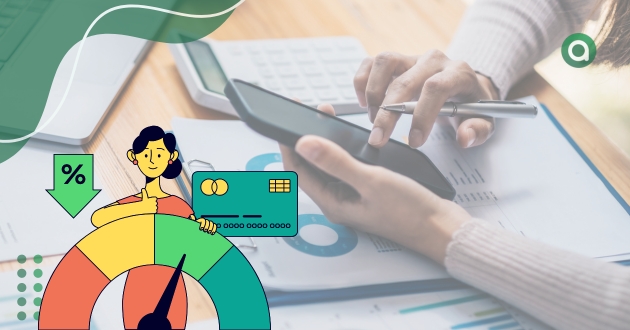Check credit score for free is more than just a convenient online service, it is a financial habit that can completely change the way you manage money and plan for the future.
In today’s fast-paced world, where every decision involving credit can have long-lasting consequences, staying informed about your score is no longer optional, it is a necessity. Many people only think about their credit score when applying for a loan or a new credit card, but waiting until that moment can be a costly mistake.
By making regular checks part of your financial routine, you not only avoid surprises but also gain the ability to prepare for important opportunities with confidence.
In fact, your credit score functions as a financial passport, opening or closing doors depending on how healthy it looks. Lenders, landlords, and even potential employers may use it to assess how trustworthy you are with obligations.
Because of this, understanding how to check credit score for free ensures that you always have visibility over this crucial number without the burden of extra costs. Moreover, it helps you stay proactive instead of reactive, since you can identify errors, fraudulent activity, or declining patterns before they become serious obstacles.
Understanding the Basics of Credit Scores
A credit score is a three-digit number that represents your financial reliability. It is used by banks, landlords, and even insurance companies to evaluate the likelihood of you meeting your payment obligations. Typically, the score ranges from 300 to 850, with higher values indicating lower risk for lenders and therefore greater chances of obtaining credit with favorable conditions.
This number is not arbitrary, it is calculated based on specific factors. Payment history carries the most weight, followed by credit utilization, which refers to how much of your available credit you are actually using. In addition, the length of your credit history, the diversity of your accounts (credit cards, loans, mortgages), and new credit inquiries also influence the final result.
It is important to understand that the score is not fixed. On the contrary, it changes according to your financial habits. Paying bills on time, reducing excessive credit card use, and avoiding unnecessary credit applications are practices that directly impact whether your score rises or falls. This means that every financial decision contributes to shaping your overall credit reputation.
In this context, applying Credit Score Improvement Tips becomes essential. Small changes, such as keeping credit utilization below 30%, diversifying the types of credit you use, and monitoring your report regularly, help strengthen your profile. Thus, instead of viewing your score as an insurmountable obstacle, you can see it as a tool that can be developed and improved step by step.
Why You Should Regularly Monitor Your Credit
Monitoring your credit is not just about curiosity. It serves multiple practical purposes. First, it allows you to identify errors in your credit report. For instance, you might discover an account listed that you never opened, which could indicate identity theft.
Secondly, checking your score frequently helps you track the progress of your financial habits. If you have been paying bills on time and reducing debt, your score will reflect these efforts.
Furthermore, when preparing for significant financial moves, such as applying for a mortgage, renting an apartment, or financing a car, you need to know where you stand. Without this awareness, you may face unexpected rejections or higher interest rates. Therefore, choosing to check credit score for free provides peace of mind and strategic insight.
Where to Check Credit Score for Free

Thanks to the digital age, there are now several platforms that allow individuals to access their scores at no cost. Transitioning from traditional paper reports to online tools has made the process fast and straightforward.
- Credit Bureaus’ Official Websites: Most credit bureaus provide consumers with at least one free credit report annually. By visiting their official websites, you can obtain a detailed document that outlines your credit history. Although the score itself may sometimes come with a small fee. Many bureaus have recently begun offering it free of charge as part of consumer protection initiatives.
- Financial Institutions and Banks: Another effective way to check credit score for free is through your bank or credit card issuer. Many financial institutions now provide clients with monthly updates on their credit scores directly in their online banking dashboard. This method is reliable, easy to access, and often comes with additional financial tips tailored to your situation.
- Independent Credit Monitoring Apps: With the rise of fintech, mobile apps have become a popular tool for monitoring financial health. Apps such as Credit Karma or Mint offer free credit score checks, along with personalized advice for improving your rating. The benefit of using these platforms lies in their user-friendly design and continuous monitoring features.
Common Myths About Free Credit Score Checks
Despite the availability of free resources, many people avoid checking their credit scores because of misconceptions. One common myth is that every time you view your credit score, it will drop.
In reality, there are two types of inquiries: hard and soft. Hard inquiries occur when a lender checks your credit for a loan or credit card application, and they can temporarily affect your score. However, when you personally check credit score for free, it is considered a soft inquiry. Which does not impact your rating.
Another myth is that free credit scores are inaccurate or less reliable than paid versions. This is false, the free scores provided by recognized apps and banks are based on the same data that lenders use. While some variations exist between scoring models, the overall picture remains consistent.
How to Interpret Your Credit Score
Understanding the number you receive is just as important as accessing it. Here is a general breakdown:
- Excellent (750–850): You are likely to qualify for the best loan terms and lowest interest rates.
- Good (700–749): You are considered a reliable borrower with favorable approval odds.
- Fair (650–699): You may face higher interest rates, but credit opportunities are still available.
- Poor (600–649): Credit approval becomes more difficult, and rates are often much higher.
- Very Poor (300–599): Significant challenges exist, and lenders may view you as high-risk.
By interpreting your score within these ranges, you can set realistic expectations when approaching lenders.
Step-by-Step: How to Check Credit Score for Free
To make the process even clearer, here is a straightforward path:
- Choose your platform whether a credit bureau, bank, or app.
- Register or log in to your account.
- Verify your identity by providing personal information, such as Social Security number or date of birth.
- Access your credit score and review any additional information provided.
- Take note of factors impacting your score, such as high credit utilization or recent inquiries.
This simple process takes only a few minutes, yet it empowers you with valuable financial insights.
Advantages of Checking Your Score for Free
The benefits extend beyond saving money. By accessing your score without cost, you can:
- Build financial confidence by understanding where you stand.
- Prevent fraud by identifying suspicious activity early.
- Negotiate better loan terms by presenting lenders with evidence of your reliability.
- Develop realistic goals for credit improvement.
Ultimately, the decision to check credit score for free is a proactive step that empowers you to control your financial future rather than leaving it to chance.
Conclusion
In conclusion, your credit score is not just a random number; it is a financial indicator that shapes your opportunities, from loan approvals to rental agreements and even career possibilities.
Taking the time to check credit score for free ensures that you remain informed, proactive, and prepared for whatever financial decisions lie ahead. By knowing your score, you can identify errors, prevent fraud, and create a roadmap for long-term stability.
Moreover, credit awareness provides you with negotiating power. For instance, walking into a bank to request a mortgage while already aware of your score puts you in a stronger position to argue for better interest rates.
Instead of being surprised by hidden barriers, you approach financial institutions with confidence. This shift from reactive to proactive financial behavior represents one of the most valuable benefits of monitoring your credit regularly.
At the same time, remember that checking is only the beginning. The real transformation occurs when you act on the information. Applying strategies like paying bills on time, lowering credit card balances, and diversifying your credit portfolio are all part of consistent efforts that lead to meaningful improvement.
For additional guidance, you can explore educational resources provided by official institutions such as the Federal Trade Commission (FTC) and the official website AnnualCreditReport, which is authorized by federal law to provide consumers with free access to their credit reports. Both sources offer trustworthy information, tools, and step-by-step instructions to help you better understand and manage your credit.
Ultimately, by making it a habit to check credit score for free, you invest in your financial future. Each time you review your score, you gain insights that allow you to adapt your habits, safeguard your reputation, and unlock new opportunities.





